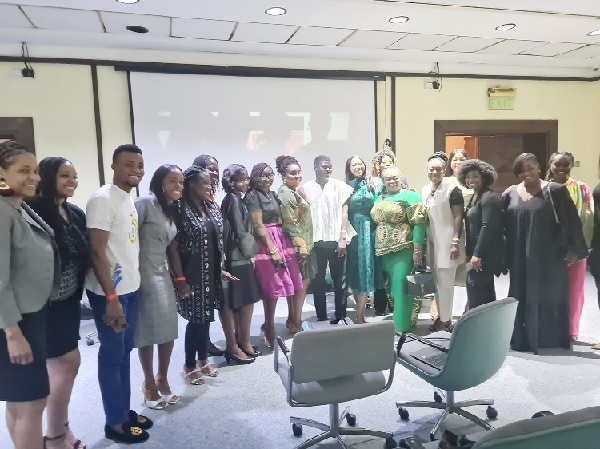
Business owners urged to identify right funding sources
Entrepreneurs and small business owners have been urged to carefully study and identify the right funding type they require to either start or scale up their businesses.
They have also been advised to ensure that the type of funding sourced fits into the long-term objectives and overall vision of their businesses.
The Executive Director of The Business Centre (TBC), a business advisory firm based in Philadelphia, the United States of America (USA), said running a business came with varied objectives and vision and, therefore, the source and nature of funding to scale up must be well thought through to ensure success.
Pamela Rich-Wheeler gave the advice on the last day of the just-ended Global Women’s Professional & Business Conference held at the Accra International Conference Centre (AICC) and organised by the US-Ghana Chamber of Commerce.
Known as one of the biggest conferences for women in the annals of the country’s events calendar, the two-day conference drew professionals from all over the world, including the USA, Nigeria, Kenya and Ghana to learn and share ideas about how to start or scale up their businesses, using different but less complicated methods.
Speaking on the topic, “Creative ways of financing your business”, Mrs Rich-Wheeler said there are many ways to find funds and mentioned some as Crown funding, Investment clubs, Home equity loans, Angel funds, Family and friends, Pitch competitions, Partnerships and Private equity, among many others.
According to her, each of these sources or types of funding fitted specific objectives of the business and must be carefully thought through before any decision was made.
“You set up the business and you know what the objectives are and, therefore, you should be able to ensure that you choose the right type and work with it,” she said in the session which drew one of the largest participants.
Mrs Rich-Wheeler said each of the funding types had its pros and cons and must, therefore, be carefully weighed to suit the business.
Ghana experience
In Ghana, for instance, access to finance has been identified as a dominant constraint facing the Small and Medium Enterprises (SME) sector.
This development has left many potential business ideas shelved. Those already in business are also finding it tough to expand because they lack the right funding sources to tap into to grow.
A series of World Bank studies have found that about 90 per cent of small enterprises surveyed stated that credit was a major constraint to new investment. It has also been established that there is limited access to financial resources available to smaller enterprises compared to larger organisations and the consequences for their low growth and development.
This stems from the fact that SMEs have limited access to capital markets partly due to the perception of higher risk, informational barriers and the higher costs of intermediation for smaller firms.
The studies have also revealed that in Sub-Saharan Africa, including Ghana, most small businesses fail in their first year due to a lack of support from governments and traditional banks.
Exploring sources
Mrs Rich-Wheeler said despite the difficulties that abound, there was need a for the business owners to be careful to ensure that the source of funding identified was not one that did not fit into their business plan or the vision of the business.
She said the TBC provided advice and support in that area and urged potential business owners to take advantage of the services offered to enable them to reach the right sources to raise funds for their businesses.
Starting a business
Speaking on the topic “Monetising Your Side Hustle; Preparing our youth and young adults for entrepreneurship,” Nailah Wheeler, also from the TBC, stressed the need for the youth wanting to venture into business to always ensure that they had a business plan.
According to her, a business plan served as a road map and also “helps you to fully capitalise your business”.
The next step, she said, was for them to identify their clients and determine the right pricing by ensuring that one did not price too high or too low while helping to identify the right target.
Ms Wheeler stressed the need for them to also research the competition, set financial goals, bundle services and, or products, and join trade organisations.